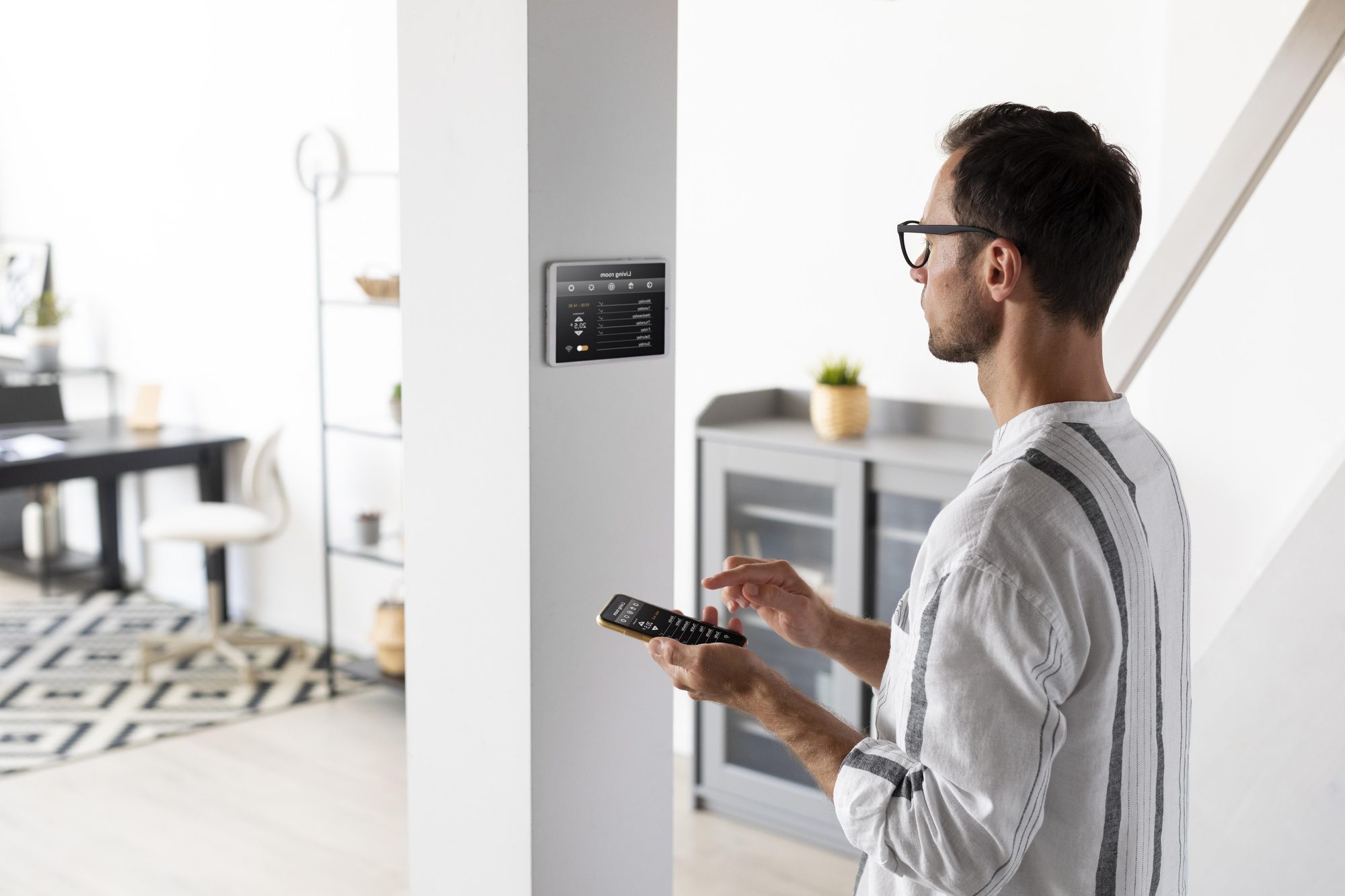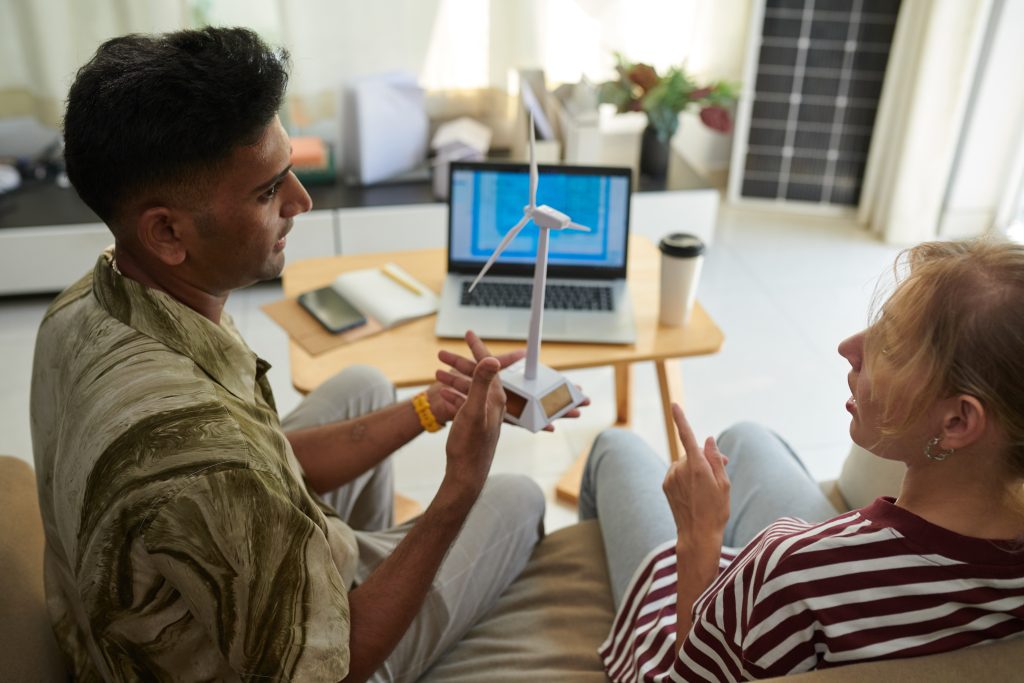Do Home Security Systems Use a Lot of Electricity?

Home security systems play a big role in keeping families safe, offering peace of mind against intruders. But there’s another question that often comes up—how much electricity do they actually use? Surprisingly, most systems only consume 5 to 20 watts per hour (kind of like a small light bulb). (1)
That’s not much at all! For anyone curious about balancing safety with energy efficiency, this might be a relief. It’s easy to assume these systems drain a lot of power, but the numbers tell a different story. Keep reading to uncover how these systems work and what makes them so efficient!
Key Takeaway
- Home security systems use very little electricity compared to other household items.
- CCTV cameras range from 2 to 15 watts, depending on their features.
- Even with many cameras and alarms, costs stay low for homeowners.
Understanding Power Use in Security Systems
Credits : The Electrical Guy
1. Alarm Systems
Alarm systems are pretty smart when it comes to saving energy. They only use about 5 to 20 watts every hour. If you think about it, that’s just 0.12 to 0.48 kWh a day. Over a whole year, that adds up to around £5.26 in the UK. That’s less than the cost of a fancy coffee! These systems are built to be efficient, so they don’t waste much power. Some even have energy-saving features, which makes them a great choice for keeping a home safe without spending a lot on electricity.
When someone thinks about getting an alarm system, they might worry it’ll make their bills go up. But honestly, the power they use is so small that it’s easy to manage. Plus, having that extra layer of safety is worth it. Knowing the house is being watched over can help families feel more secure. So, if anyone’s on the fence about getting an alarm system, they can rest easy knowing it won’t cost much to run.
At Shielded Residence, we design alarm systems with energy efficiency in mind, ensuring your family stays secure without unnecessary electricity costs. Our professional installation services guarantee these systems are set up for maximum efficiency, saving you even more.
2. CCTV and IP Cameras
CCTV and IP cameras are another big part of home security. How much power they use can vary. Regular CCTV cameras usually need about 2 to 15 watts. And those PoE (Power over Ethernet) cameras? They’re super handy because they use less than 12 watts and only need one cable for both power and data. That makes setting them up a lot simpler.(2)
If someone has just one camera, it might cost about $32 a year to keep it running. That’s not bad for the peace of mind it brings. A lot of people wonder if cameras work well at night. Most modern ones do! They come with night vision, so they can see even when it’s dark. Sure, this might use a little more electricity, but most families think it’s worth it to feel safe around the clock.
Our CCTV and IP camera solutions, including PoE options, are tailored to meet your needs while minimizing energy consumption. With night vision capabilities and seamless monitoring via the Shielded Residence app, you can trust us to safeguard your home around the clock.
3. DVR/NVR Systems
DVRs and NVRs are the devices that record all the video from security cameras. These tend to use more power than the cameras themselves. A DVR usually needs about 40 to 60 watts, while an NVR is a bit better at around 35 to 40 watts. These systems are like the brain of the whole setup, keeping track of everything the cameras see.
For a home with several cameras, the yearly cost to run a DVR or NVR might be about $50. That might sound like more, but these devices are super important. They store all the video, which can be really helpful if something happens. Plus, lots of people like that they can check the footage on their phones, even when they’re not home. It’s like having an extra set of eyes on the house all the time.
4. Overall Energy Use
Even with a full security setup—alarms, cameras, and recording devices—the total power use stays pretty low. A basic burglar alarm system might use about 60 to 70 kWh a year, which costs around $13 annually. Adding cameras and a DVR or NVR won’t make the bills go crazy either.
Having a complete security system can make families feel a lot safer. Knowing there are multiple layers of protection in place is comforting. And since the energy costs are so low, it’s easier to see why so many people choose to invest in these systems. Instead of worrying about high electricity bills, they can focus on how much more secure their home feels.
Factors That Affect Power Use

There are a few things that can change how much electricity a security system uses.
- Number of Devices: The more cameras or alarms a homeowner has, the more power the system will need. But here’s the good news—they’re designed to be energy-efficient, so even with extra devices, the power use stays pretty low.
- Continuous Monitoring: Some systems are always on and connected to monitoring services. This can use a little more electricity, but it’s also how they keep homes safe 24/7. It’s like having a watchful friend who never takes a break!
- Settings and Features: Features like motion detection might use a bit more energy. But most modern systems are built to save power, even with these extras. Homeowners can also tweak the settings to use less electricity while still keeping their home secure.
By making small changes, families can keep their energy use low. It’s all about figuring out which features matter most and using the system in a way that works best for them.
Conclusion
Home security systems don’t use much electricity at all. Compared to things like fridges or heaters, their energy use is tiny. A well-designed system, like one with energy-efficient cameras or alarms, can keep a home safe without adding much to the electric bill.
Plus, homeowners can adjust settings to save even more power while still getting great protection. It’s a small price to pay for the peace of mind that comes with knowing your family and home are secure. So, if someone’s thinking about getting a security system, they shouldn’t worry—it’s a smart and affordable choice for safety!
At Shielded Residence, we believe safety and affordability go hand in hand. Our energy-efficient home security systems provide peace of mind without burdening your electricity bill. Trust us to tailor a solution that keeps your home safe and your energy costs low.
FAQ
Do security systems use a lot of electricity in standby mode?
Many security systems, including CCTV cameras and alarm systems, consume standby power when not actively recording or sounding an alarm. Understanding power consumption in standby mode can help reduce electricity usage and improve energy efficiency.
How much power does an IP camera system use during continuous recording?
The power consumption of an IP camera system depends on its features, like night vision and motion detection. Total power usage varies based on the number of cameras and their power requirements, such as watts of power and volts and amps.
Are CCTV cameras and smart lighting energy efficient?
Modern CCTV cameras and smart lighting often have low power and power-saving modes. Energy-efficient systems can help reduce electricity usage, contributing to lower electricity bills without sacrificing performance.
How do motion sensors in burglar alarms affect electricity usage?
Burglar alarms with motion sensors use minimal energy unless triggered. These systems are designed for low energy consumption to minimize electricity costs while maintaining reliable security.
What factors influence the power consumption of CCTV systems?
Energy usage for CCTV systems depends on factors like camera resolution, outdoor security features, and continuous recording settings. Energy monitoring can help track electricity costs and optimize system power to improve energy efficiency.
References
- https://panthersecurity.co.uk/2024/07/30/does-a-house-alarm-use-a-lot-of-electricity/
- https://www.idealhome.co.uk/house-manual/how-much-electricity-does-a-home-security-system-use